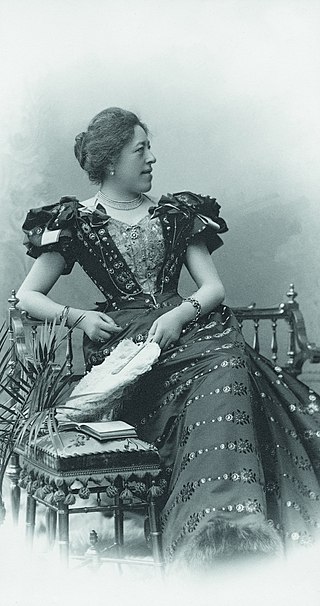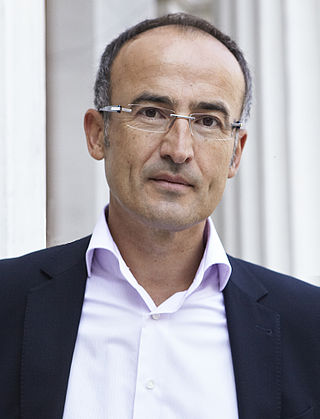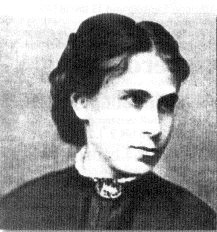
Olga Wisinger-Florian was an Austrian impressionist painter, mainly of landscapes and flower still life. She was a representative of the Austrian "Stimmungsimpressionismus", a loose group of Austrian impressionist painters that was considered avant-garde in the 1870s and 1880s.

Josef Danhauser was a painter from the Austrian Empire. He was one of the prominent artists of Biedermeier period, along with Ferdinand Georg Waldmüller, Peter Fendi, and others. Danhauser's works, which went largely unappreciated in his time, dealt with moralising subjects and had a clear influence of William Hogarth.

Tobias G. Natter is an Austrian art historian and internationally renowned art expert with a particular expertise in "Vienna 1900".

Emil Jakob Schindler was an Austrian landscape painter. His eldest daughter was the author and composer Alma Mahler.

Tina Blau, later Tina Blau-Lang was an Austrian landscape painter.

Ernestine von Kirchsberg was an Austrian landscape painter.
Ilse Haider is an Austrian artist. She focuses on photography and her photographic works use three dimensional surfaces. She has received a number of awards for her work and her work has appeared in exhibitions throughout Europe and the United States.
Markus Hofer is an Austrian sculptor. He is known for his creation sculptures which place everyday objects in unusual context.

Broncia Koller-Pinell was an Austrian Expressionist painter who specialized in portraits and still-lifes.

Alfred Zoff was an Austrian Post-Impressionist landscape painter.
Hildegard Joos was an Austrian painter and is known as the "Grande Dame" of geometric abstraction and constructivism in Austria.
Marianne von Eschenburg (1856-1937) was an Austrian painter. She was known for her portrait paintings.
Leo von Littrow was an Austrian-Fiuman painter known for her landscapes and marine paintings.

Bertha Mathilde Müller was an Austrian portrait painter.

Hermann Freiherr von Königsbrunn was an Austrian landscape painter.

Wilhelm Thöny was an Austrian painter, illustrator, graphic artist and etcher.

Marie Müller was an Austrian portrait painter.
Johanna Kampmann-Freund (1888-1940) was an Austrian painter and in 1927 was the first woman to win the Austrian State Prize.
Norbertine von Bresslern-Roth was an Austrian painter and printmaker.

Rudolf Ribarz was an Austrian landscape painter.














